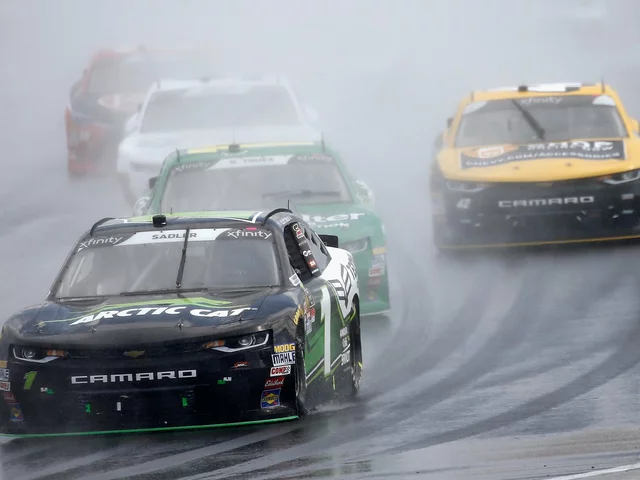Understanding the Unpredictability of Weather in Auto Racing
Now, as much as I love the smell of burning rubber and the exhilarating whoosh of fast-moving cars, I, Jackson, have often found myself biting my nails over one of the great unpredictabilities of auto racing - the weather. More specifically, the rain.
Does it make the race more exciting? Certainly. Does it offer a level playing field for all drivers? Perhaps. But does it actually allow the races to take place? Now that's a question I've heard numerous times. As much as I'd love to say a simple 'yes' or 'no', the reality isn't that straightforward. So, let's dive into it and clear up this conundrum.
Rain, Risks, and Auto Racing: An Intertwined Tale
As an auto racing enthusiast, I can say that wet weather brings out the real skill in drivers. The turning, braking, and acceleration all require superior skills when the weather turns soggy. While it's spectacular to watch, safety is a critical factor that makes the 'wet-racing' situation complicated.
I remember attending an auto race a few years back. Dark clouds were looming overhead, and I could see the concern written all over the officials. As the first few drops turned into a drizzle, and then a downpour, you could see the tension mounting. That day, the race did take place in the moderate rain. The drivers adjusted fantastically, controlling their cars with remarkable dexterity during the wet conditions. However, it was evident to all that the risks had significantly spiked.
In simpler terms, racing in the rain is a formidable challenge. It's like trying to make a perfect coffee brew from a new brand of coffee beans while simultaneously juggling six flaming torches. A slight misjudgment can lead to calamitous consequences. So, yes, while it's definitely a spectacle, it's not without its perils.
The Influence of the Rain on Different Racing Disciplines
A prime consideration to keep in mind is that not all races are the same. The impact of rain varies drastically depending on the type of race, and the vehicle being driven.
For instance, in Formula 1, rain is basically the equivalent of throwing a shark into a swimming pool - it dramatically changes the dynamics. The drivers have to constantly adjust the delicate balance between speed, grip, and visibility. In motorcycle races like MotoGP, the rain is an even greater challenge, testing the driver's skill, courage, and the tire's capabilities.
Let's not forget about the off-roading events, where rain can turn the track into a mud pit, affecting traction significantly and challenging even the most experienced drivers. As you can see, it isn't a simple matter of rain making the race more fun or challenging, it's a multifaceted issue that involves a myriad of variables and factors.
Racing Under the Rain: The Official Decisions
Finally, we need to talk about the decision-makers, the officials who hold the responsibility for contingencies regarding rain on race day. They primarily decide whether a race will go ahead or be postponed or even cancelled outright. Their decisions, as you can imagine, are highly regulated and stem from assessing numerous considerations, one of the prime ones being safety.
In most car races, wet races start behind the safety car, allowing the drivers to familiarize themselves with the conditions before the actual race begins. If the rain is too heavy, posing a serious risk to the safety of the participants or spectators, the race will likely be red-flagged or delayed until conditions have improved. Regular assessments are conducted as weather conditions can change rapidly, particularly in open tracks. Sometimes, it's more of a waiting game, much like me waiting for my online order to be delivered!
Racing in the rain is a double-edged sword. It can shed light on a driver's true capability and makes for thrilling spectacles, yet it escalates the risk factor significantly and often prompts tough decisions from officials. So, do auto races take place in the rain? The answer doesn't lie in binaries. It's more of a "Yes, but...", "It depends..." kind of situation.
As someone wise once said, "In racing, there are no certain answers, just endless possibilities!"




